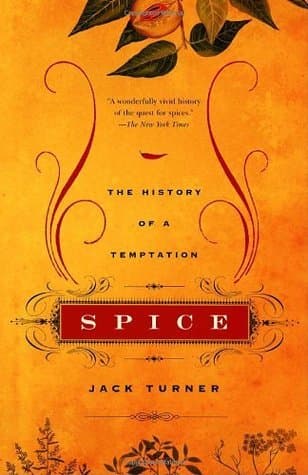
Book Review Summary: Spice: The History of a Temptation
Introduction
"Spice: The History of a Temptation" by Jack Turner is a captivating exploration of the history of spices and their allure throughout the ages. This book delves into the human impulses that fueled the spice trade, examining the cultural, religious, and culinary associations that spices have held throughout history. From their use as love potions and aphrodisiacs to their role in medicine and culinary arts, Turner takes readers on a journey through time, uncovering the diversity and complexity of spices.
About Jack Turner
Jack Turner, the author of "Spice: The History of a Temptation," is a renowned historian and writer. With a deep understanding of the subject matter, Turner brings his expertise to the book, providing readers with a comprehensive and engaging account of the history of spices. His writing style is both accessible and informative, making the book enjoyable for readers with various backgrounds.
Analysis of Views
-
Engaging Exploration: Readers praise Turner's ability to delve into the human impulses that fueled the spice trade. The book offers an engaging exploration of the cultural, religious, and culinary associations that spices have held throughout history.
-
Diverse Perspectives: Turner covers a wide range of topics related to spices, including their use in medicine, religion, and literature. Readers appreciate the diverse perspectives presented in the book, which provide a comprehensive understanding of the subject matter.
-
In-Depth Research: Many readers commend Turner's extensive research and attention to detail. The book is filled with fascinating historical facts and anecdotes that bring the subject matter to life.
-
Engaging Storytelling: Turner's storytelling skills are highly praised by readers. The book is not just a collection of facts but a captivating narrative that keeps readers engaged from start to finish.
-
Recommendation: Readers highly recommend "Spice: The History of a Temptation" to anyone interested in history, food, or culture. They find the book to be a fascinating read that offers a unique perspective on the history of spices and their impact on human civilization.
Reasons for Recommendation
-
Comprehensive Coverage: Turner covers a broad range of topics related to spices, from their use in ancient times to their role in modern cuisine. This comprehensive coverage allows readers to gain a deeper understanding of the subject matter.
-
Engaging Storytelling: Turner's storytelling skills make the book enjoyable to read. The anecdotes and historical facts presented in the book are engaging and keep readers interested throughout.
-
Accessible Writing Style: Turner's writing style is accessible and easy to understand, making it suitable for readers with various backgrounds. The book is both informative and entertaining, making it an excellent choice for those looking to learn about the history of spices.
Reasons for Not Recommendation
-
Disorganized Structure: Some readers find the structure of the book disorganized, with jumps between time periods and cultures that make it difficult to follow. They suggest that a more coherent narrative structure would enhance the overall reading experience.
-
Limited Focus on Non-European Perspectives: A few readers feel that the book focuses too much on European perspectives and does not adequately explore the impact of spices on non-European cultures. They suggest that a more balanced approach would provide a more comprehensive understanding of the subject matter.
Conclusion
"Spice: The History of a Temptation" by Jack Turner is a captivating exploration of the history and allure of spices throughout the ages. With its engaging storytelling, comprehensive coverage, and accessible writing style, this book offers readers an enjoyable and informative journey through the world of spices. While some readers find the structure disorganized and lacking in non-European perspectives, overall, "Spice" is highly recommended for those interested in history, food, or culture.